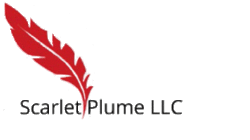
The editing process
What does an editor do, exactly?
An editor reads your documents carefully, checks for proper grammar, syntax, punctuation, and ensures consistent language style and tone. The editor works with the author to improve the quality of the written work before the document is distributed or published.
Editors consider the overall message and the target audience. During review, an editor is always thinking in questions: Who will read this? Why should the reader care about its content? What is its purpose?
Think of an editor as an objective set of eyes. Someone who can see what's wrong and make it right. Take what's good and make it great.
Yours truly
So, to answer the question, an editor...
- Reviews documents for spelling, grammar, syntax, and punctuation
- Assures that documents written by several authors have a single, consistent voice
- Fact-checks
- Compares text with graphics and tables for accuracy
- Assures that writing is clear, concise, and is appropriate for the intended audience
- Among other things…
Are there different levels of editing?
Yes. Every assignment has its own set of unique circumstances. Factors such as time, budget, and the volume of work to be reviewed will also play a part. But, essentially, there are three primary levels:
1
Proofreading
Proofreading involves checking for basic spelling and punctuation and, if applicable, the accuracy of figures (as in tables or lists). The editor may also make minor formatting changes to the document to give it a final polish. Typically, documents in the proofreading process have been through several reviews and are now in nearly-final form.
2
Copyediting
Copyediting is the next highest level of review. The editor will proofread the document, but also focus on language consistency and data accuracy. A copyedit typically involves checking spelling, terms, abbreviations, numbers, dates, capitalization, labels on illustrations and tables, and references in the text. The editor will look for consistent style and tone within the document and make revisions accordingly.
3
Comprehensive editing
During a comprehensive edit, the editor must consider the document’s concept, target audience, and intended use. This means the editor must work closely with the author(s) to ensure that key messages are as the author intended and that the data presented is accurate. In addition, the editor will evaluate content, organization, design, and style. The editor will check for clarity as demonstrated by succinct, consistent language. Also, the editor will be more involved in the overall process, which may include extensive formatting, preparing for print publication, and other related tasks. In most cases, this level of editing will require several iterative reviews.
So far, so good, but how do we get started?
It’s pretty easy. Email or call me, describe your project and tell me what you need. We’ll talk over details and expectations and decide on a course of action. One writing tip I offer to authors is to consider a few important questions while they are writing their drafts:
- What is the purpose of my document?
- Who will read it and why? (Who is my audience?)
- How much do my readers already know about this subject?
- How will my readers react to this information? (Positively, negatively, or a mixture of both?)
- How can I convey information in a more positive light, or demonstrate key benefits?
- Will my audience read the entire document or only certain sections? How do I organize my information accordingly?
- How do I want my readers to use the information I provide?
This approach, if an author can afford the time, will speed up the editing process. Of course, I’ll read work in any stage of development and offer my suggestions. I’m here to help to make you, your organization, and your target audience happy.